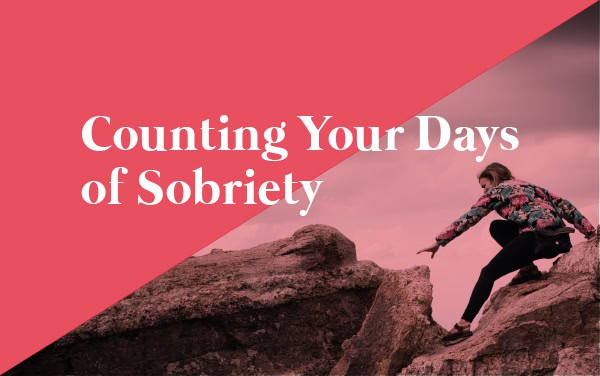
by Kerri MacFarlane | Feb 15, 2021 | Blog, Early Sobriety, Expectations, Helpful Tips, The First 24, The first Year
Do you keep count of your days of sobriety? Do you keep track of how many days you have away from alcohol? ? Should you? People fall into one of two different camps when it comes to that question.
One camp says yes…keeping track and counting your days of sobriety helps you. In the early months it can be a powerful motivator. That running count can give you the confidence you need to get through the hard days. It can be a way of measuring your progress, to help you visualize the distance you are putting between yourself and your drinking past.
The other camp says no…day counting can backfire, be counterproductive, and hurt you. It adds a layer of unneeded pressure. And really the only day that matters is TODAY…so why would you keep track? Quality of days over quantity of days is what’s important.
And what is more important…emotional sobriety or continuous sobriety? If you are white knuckling it through every day…counting those days you are staying away from the booze but miserable…is that enough?
Like anything else in the recovery world I don’t think that there is a right or wrong answer.
Just like there is no right or wrong way to get sober. Counting days is neither right or wrong. It’s entirely up to the individual. It’s entirely up to YOU. And you may feel one way about it and then change your mind along the way. And that is OK.
“The importance of sober time is a contentious issue, considered by some to be “just a number” and others, the barcode stamped on your very soul. Fact: your sober date is yours, and this means you can report it however you wish, if at all.” ~ Anna James
Day counting is a big deal in some 12 step programs, such as AA. There are chips for 24 hours, 1 month, 2 months, 3 months, 6 months, 9 months, 1 year…you get the picture. There are terms thrown around like “new comer” and “old timer”…all depending on how much sobriety time you have. There are celebrations and cake! (I like cake! ?) Certain service positions will become available to you after reaching a specific amount of sober time. Chips, cake, service position opportunities…that all sounds fab! Right?!
But…let’s say you have 10 years of continuous sobriety…and for whatever reason you go out and do some field research (aka…drink alcohol)…well my friend, then you are back on day 1. Doesn’t matter if it was one drink or a night of drinks. You just ‘lost all your time’.
Ouch. Back on day 1. But what happened to those 3,650 days you just had? Are they just gone? As my friend Kate would say…gone, like a fart in the wind? ??
The ‘pro-keeping count camp’ believes that, because you will have to reset your counter and will be back on day 1, that counting sobriety days will stop you from doing that field research. That you will think twice about picking up that drink. Doesn’t always work that way though.
Personally I feel like counting days can be a slippery slope. (Don’t come at me ?…that’s just my opinion…and I am just one little person in this great big world full of people in recovery!) I mean c’mon…we are all human…and alcohol is a sneaky piece of shit. What if…in spite of the fact that you have 3,650 continuous days of sobriety…you pick up again? You’ve been stacking those days and now find yourself back on day 1. Time to reset your tracker my friend. But wait! Since you are starting over again why not drink through the weekend…and then restart your tracker. Or, continue through the upcoming holiday and then restart it. Before you realize it, weeks have gone by and you have continued to drink. ?
I’m not entirely against counting your days of sobriety. In fact quite the opposite. It was a tool I used and a HUGE part of my early sobriety. HUGE! Those first 100 days I was checking my tracker daily. I always knew what day I was on even without checking my tracker app. Counting those days in my early sobriety was a big motivation for me. Made me feel successful. So if you are just starting out, counting the days can be an indispensable tool. And there are a lot of apps out there that will help you keep track.
After I hit 100 days things started to change. Counting the days became less motivating for me. I started finding my motivation in other things…like how I was experiencing less anxiety, I had more energy, my mood was better, I was becoming more active. After I hit those triple digits I found I didn’t (and don’t) need the daily reminder of how far I’ve come.
I also stopped keeping track of the days because it just started to feel so overwhelming. With my desire to never drink alcohol again I was proud of the number of days I had gone without drinking…but then overwhelmed by the number of days I still had before me. ? I know…I know…one day at a time. But counting days was causing me to continuously think about the enormity of my decision to ditch the booze for good. That is not healthy or helpful.
Counting your sobriety days…or your days away from alcohol…is a very personal choice. And the way you do it, if you decide to do it, is also entirely your choice. If you’re counting because you feel it is expected of you…then don’t. ?? If you are motivated by waking up in the morning and seeing the number on your tracker go up…then do. ??
Even though I don’t count my days anymore I am forever grateful for this simple strategy that helped me during my early days of sobriety. The most important thing I hope you will remember is that no matter what your day count is…it is YOU that counts!
Until next month, be well,
Kerri Mac ??
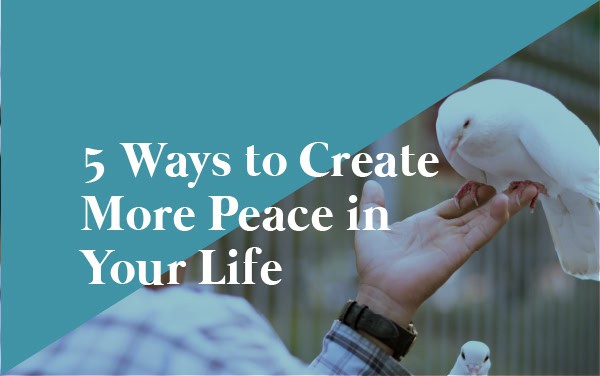
by Kerri MacFarlane | Jan 5, 2021 | Alcohol Relapse, Blog, COVID, Early Sobriety, Helpful Tips, Inner Peace, The first Year
I stopped making New Year Resolutions a few years ago. As positive, excited and motivated they would make me feel at the start of the year…oftentimes those very same resolutions would bring me down later in the year. It wouldn’t be long and I would feel like a failure for not following through. I would start thinking of myself as someone who just abandons their hopes and dreams. “Kerri, you suck.”, would play on repeat in my mind.
Counterproductive, to say the least.
Then a couple years ago, instead of making resolutions, I tried doing what I was seeing a lot of other people do. I would choose a word for the year. The chosen word wasn’t a resolution or a goal. It was more like a prayer or mantra, and I used it to help guide me in the daily actions and decisions (both large and small) I had to make. It was as if the word was a lighthouse helping to show me the way to a better version of myself.
As 2020 was coming to an end I started thinking about what my word for 2021 would be. I took me a little longer than it had in the previous years to decide on one. 2020 was strange, scary, hard, filled with uncertainty, unfamiliarity and loss. I kept hearing and reading posts and comments from people that just couldn’t wait to move past 2020, that it was a year they wanted to forget. Sorry to burst your bubble if you are in that camp…2020 is a year that will never be forgotten.
For me, if I were to pick a word to describe 2020 it would be WEIRD. And that was ALMOST going to be my word for 2021. Maybe that will be next year’s word. ?
This year my word is PEACE. ? 
Remember…this word is like a prayer or a mantra…I am using it to guide me. I want to create more peace in my life. I want to be more at peace with myself. It doesn’t mean I can just sit back, chant ‘peace’ over and over…and everything will change. I still have to do the work. Below are some of the things that I’m doing to help create and bring more PEACE into my life.
- Clear the clutter! Unclutter your living space, your work space, your mind. Ask yourself, does it bring you peace? If the answer ISN’T a HARD YES…then…get…rid…of…it! If it’s not serving you…get…rid…of…it! Clutter in your physical space, and in your mental space, creates chaos. Chaos is the opposite of peace. That is not what we want my friends.
I cleaned out my pantry and found spices that expired in 2003!! If it’s old and expired…get…rid…of…it!
2. Relax. Find a relaxation technique that works for you. A way to release and to recharge. It could be meditation, breathwork, long walks, yoga, running, music. For me it’s meditation, music and dancing…first thing in the morning. Find what works and do it.
3. Gratitude Changes Everything Every week during 2020 a dear friend of mine wrote down 1 good thing that had happened that week. She wrote it on a little strip of paper and tossed it in a jar. On New Years she read all those little strips of paper. I thought…what a cool idea! She admits that some weeks it was hard to come up with something. I mean think about it…we just lived through our first pandemic. I think that makes the exercise that much more powerful. Find something to be grateful for every week (I challenge you to do it daily.). I’m already looking forward to reading all my weekly strips of paper on New Years 2022!
4. Follow Your Bliss Before you can follow your bliss…you need to know your bliss. What makes you happy? Brings you joy? Brings you PEACE? Listen to your inner guide and take action on what brings happiness and joy into your life. The door to peace and contentment will open. My recent houseplant hobby is opening that door for me.
5. These things here could all be listed all on their own…but I wanted to give you more things you can start doing today to bring inner peace into your life.
- Set limits, boundaries
- Accept and let go
- Slow down
- Be 10 minutes early so you don’t have to rush
- Instead of guessing…ask, we are not mind readers
- Get outside
- Escape for a while – read a book, binge on Netflix
- Disconnect – screens off
- Laugh ?
Start with one thing and build on it over time. You can do this. We can do this.
“It isn’t enough to talk about peace. One must believe in it. And it isn’t enough to believe in it. One must work at it.” —Eleanor Roosevelt
Wishing you more happiness and PEACE.☮️
Until next time, be well.
Kerri Mac ??
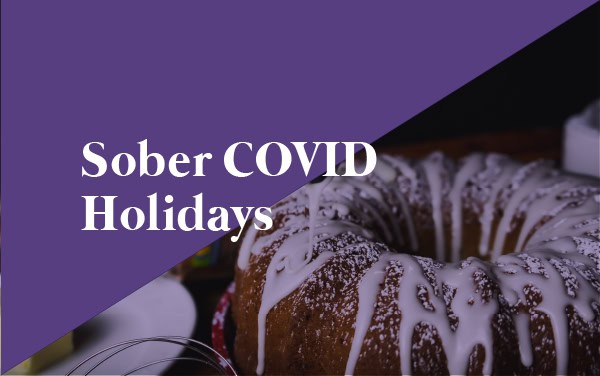
by Kerri MacFarlane | Nov 17, 2020 | Blog, COVID, Early Sobriety, Helpful Tips, Holidays, The first Year
A layered cake. That’s what I picture when I think about the next couple months. The bottom layer is the upcoming holiday season. And during a ‘normal’ year the holiday season can be stressful because…
…because of feeling overwhelmed, not getting everything on your todo list done. 
…because family. Nuff said.
…because your vision of what the holidays ‘should’ look like, looks nothing like what yours actually do look like.
…because what once looked so far away, the year’s end, is now right before your eyes…and you are still standing there with a list of unmet goals.
…because you’re lonely. You don’t do well in crowds. You’re exhausted. You’re broke.
Now take all that ‘normal’ year holiday stuff and add on another layer…a big fat layer of global pandemic.
Hold up…not done yet! Let’s go ahead and add one more layer…the “I want to stay sober through it all’ layer.
If you are newly sober, and this will be your first sober holiday season, you may be feeling a little (maybe a lot) nervous and anxious…that’s normal, and you are not alone. Stay with me here and we’ll get to some tips that can help.
For those of you that have some sober time under your belt, you know how good it feels, and what that inner freedom feels like, when you get through a holiday season alcohol free. These tips may help you too.
Self care is a must. You’ve ditched the booze! That’s a grande size of self care!! But there is more you can do in the self care arena, and taking care of your body, mind and soul is important during these stressful times. Healthy eats, plenty of water, enough sleep, physical activity, slowing down, stopping to breath, and making time for meditation. All very important and will help you get through the season. Here is a 5 minute meditation you can do anywhere!
Be mindful of what you’re drinking and thinking. (Not to be confused with ‘mindful drinking’, which is a movement I’ll explore in a later blog.) When headed to a social gathering or holiday party don’t go empty handed. Bring your own NA beverage or, if you know there will be NA options there get one right away. When you are prepared and have a beverage in hand people won’t be constantly asking you if you want a drink. Having a drink in your hand also helps you not look so awkward when you don’t know what to do with your hands.
Plan ahead. There are a number of simple things you can do ahead of time…before you get to the party…that will help reduce your angst. Drive yourself, so you can leave when YOU need to. Arrive late, leave early. Yes you are sober, but no that does not mean you have to be the designated driver, that can be triggering…drunk people are annoying (shocker!) and you may not like your drunk friends the next day. Have a friend or two on standby that you can call or text if needed.
You are going to be asked why, so have your response ready. “You’re not drinking? Why aren’t you drinking? For how long aren’t you drinking? You are never drinking again?!?!” They are going to ask…the questions will come. Because in this backwards society we live in, where drinking is the norm…if you decide to go alcohol free…you’re the odd one. You don’t owe anyone an answer. But not being prepared when this question is thrown at you can make the situation even more uncomfortable. Keep it short and simple if you want. “Why aren’t you drinking?” “Because.” The end.
Out with the old, in with the new…create new traditions. Change the setting. If you’ve always spent Thanksgiving dinner over at Aunt Mary’s…where you would have a little turkey with a lot of wine, then maybe you should offer to host the dinner at your house. Change the time. 4 pm Christmas dinner at the in-laws with all 20 cousins too much, try going over there for brunch. Do something completely different from your familiar holiday activities. Go volunteer at a homeless shelter or to walk the dogs at your local animal shelter. Giving and being of service is one of the best things you can do during the holidays, it helps you get out of your own head and focus on others.
First and foremost, make your sobriety your top priority, because it is. Every morning set your intention..tell yourself that you are not going to drink. No matter what. Eliminate the option of drinking altogether. Remind yourself why you made the decision to live a life without alcohol…and that your ongoing sobriety is the biggest, most important, gift of the season.
And always eat the cake.
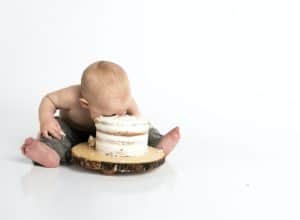
Until next time, be well,
Kerri Mac ??
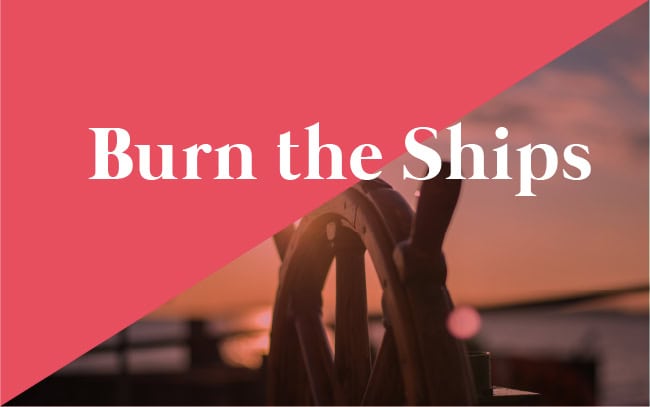
by Kerri MacFarlane | Oct 16, 2020 | Blog, Early Sobriety, Helpful Tips, The first Year
In the year 1519, Hernán Cortés, a Spanish conquistador, arrived in the New World with six hundred men and, upon arrival, ordered his men to, ‘burn the ships’. ?⛵️ His logic behind this wasn’t to go down in the history books as the conquistador loco that ordered his men to destroy his ships. Nope. It was to send a message to his men, a loud and clear message…
…there is no turning back…his men would have to conquer, or die.
Two years later, in 1521, Hernán Cortés conquered the Aztec empire. HIs ‘burn the ships’ strategy worked! Although, guys! His men didn’t even really burn the ships, they sunk them! ?? And that fun fact, my friends, wraps up our history lesson.
But there is a life lesson in this story that I do want to talk about. The story about Hernán Cortés, in its simplest form, is really just about commitment.
Retreat is easy when you let yourself have the option.
On February 15th, 2019, while attending my very first Recovery Elevator event, Nashville LIVE…I hit 100 days sober. I can remember how excited I was when I did the math and realized I would be there on that day. But I was also terrified! Flying across the country, alone, to go meet members from my online recovery community, that I only knew from Facebook…was stepping way outside of my comfort zone. It was scary, I was so nervous I almost canceled the trip. Strangers scared me. People scared me.
At that point in my sobriety, counting days was very important to me. There were days, even weeks, in the beginning, when counting those days was all I could focus on. But that got me to day 100. The first day 100 in many, many years.
Knowing myself, and finally being honest with myself, I knew that I would have to do something more than count days and read quit lit if I was going to make it another 100 days. I needed more accountability and I was going to have to get uncomfortable. So I bought that plane ticket to Nashville. And I secretly made plans to publicly share my milestone of 100 days sober on social media.
It’s not just a coincidence that my 100th day fell 100 days after my (last?) rock bottom moment. I’m not going to go into anymore of my story right now, if you’re curious you can listen to my interview – Recovery Elevator Episode 255.
When it came time to press “Post” I was a mess of sweaty, shakey, nerves. Even admitting to the people that knew, from personal experience, of my drinking problem was hard. I was embarrassed, filled with shame and guilt. My anxiety was still at an all time high, almost paralyzing at times.
There is this stigma associated with addiction, and too often it keeps people from admitting they have a problem or from seeking help. The word ‘alcoholic’ brings up images of a person living under a bridge, drinking from a brown paper bag.
I often felt damaged, defective, less than. I knew that in order for me to move forward in life, to break the cycle I had been on, that I would have to do something drastic.
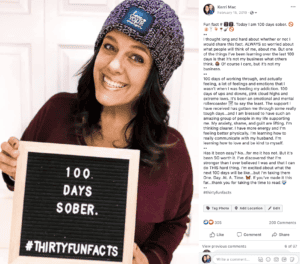
This public post on Facebook was my ‘drastic’. ??
I have never regretted posting it. As I started getting the notifications from comments and likes I was afraid to go read them. When I finally did I wanted to cry. Happy tears. ? Grateful tears. I was overwhelmed and speechless by all the positive, encouraging, supportive and ‘I can relate’ messages that I got. I was shown nothing but love.
This single scary ‘burn the ships’ post 100 days in busted down the door and has made it easy for me to continue to share my journey. Using my story and my voice helps keep me in check, and it helps others know that they are not alone.
Fast forward to today…In the few days before sitting down to get these words out I was doing a lot of thinking about my 100 day post, trying to remember the way I was feeling, what emotions I was experiencing. What quickly came to mind was how scared I was. Putting yourself out there like this, being vulnerable like this, is scary. And once it’s out there…once that ship has been burned…it can’t be unburned! But that’s the point, right? I knew I had no other choice, I had to take action. If I didn’t, nothing would change. Even though I really wanted to get sober and live a life without alcohol, I was too scared to leave the comfortable and familiar. Burning the ships gave me the courage, strength, and the push, to step into a new life.
Have you burned your ships? Or do you always give yourself a way out?
It doesn’t have to be a public blast on social media like I did. That was a level 5 on the Burnometer! ?
There are different levels of burning the ships. Start with level 1, work your way up! They all will help establish another layer of accountability for you.
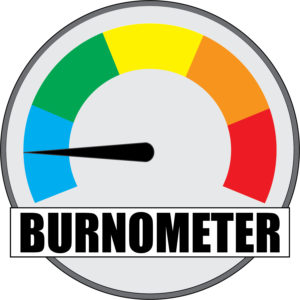
Level 1: Someone you don’t know well. This could be a store clerk, a barista, a friend from book club, but not a stranger.
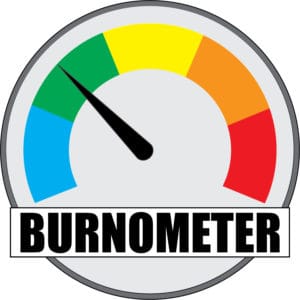 Level 2: Someone you consider a friend, or who you have regular monthly interaction with. This is an acquaintance from the gym, a neighbor, restaurant employee.
Level 2: Someone you consider a friend, or who you have regular monthly interaction with. This is an acquaintance from the gym, a neighbor, restaurant employee.
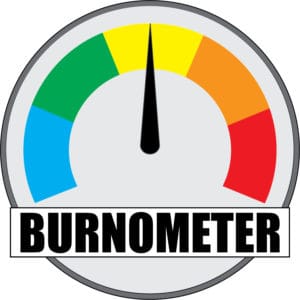 Level 3: This is someone you interact with on a weekly basis. Co-worker, good friend, running partner, or hiking friend.
Level 3: This is someone you interact with on a weekly basis. Co-worker, good friend, running partner, or hiking friend.
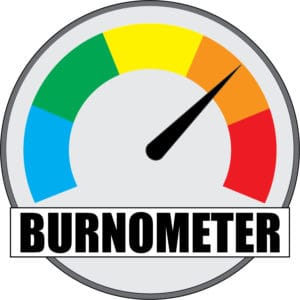 Level 4: Meeting with a close group of friends, family, spouse, in person conversation. Immediate family.
Level 4: Meeting with a close group of friends, family, spouse, in person conversation. Immediate family.
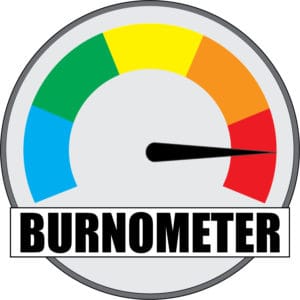 Level 5: FB Live, Podcast, Social media post, family meeting, airplane with banner in the sky.
Level 5: FB Live, Podcast, Social media post, family meeting, airplane with banner in the sky.
I challenge you to pick a level above, find someone that fits the description…and burn baby burn. ?
Please come back and share your experience with me!
Until next time, be well.
KMac ??
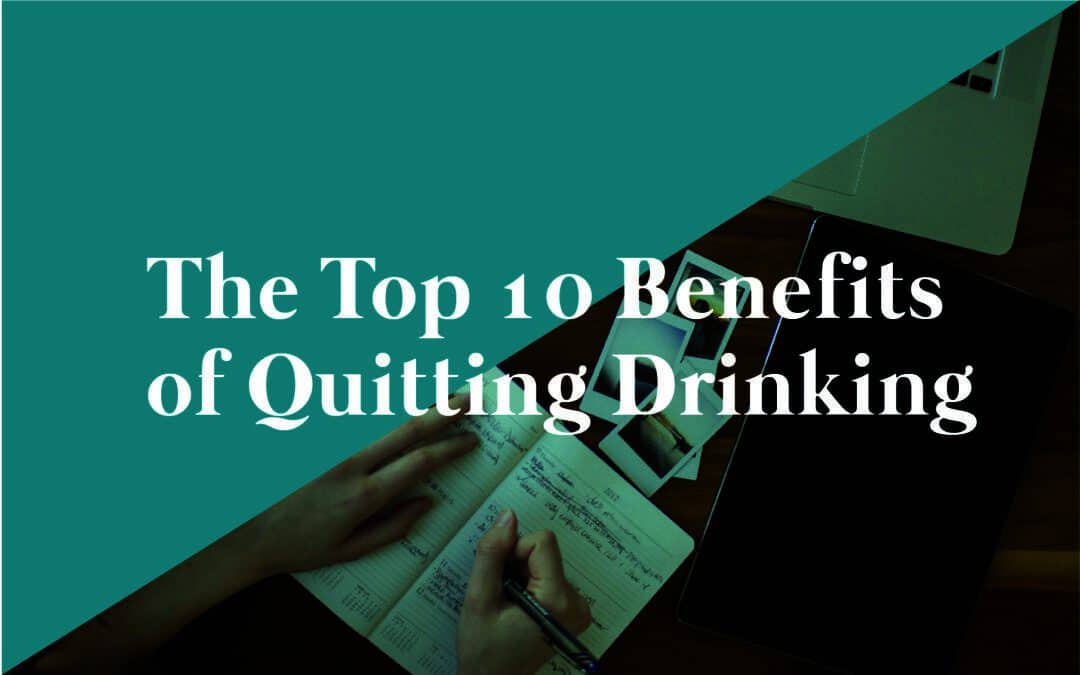
by Kerri MacFarlane | Sep 18, 2020 | Alcohol Relapse, Blog, Early Sobriety, Helpful Tips, Resources, The first Year
?? Hi, my name is Kerri Mac. Some of you may know me, but I’m betting that most of you don’t. I want to thank you for taking the time to read my blog, my very first blog.
How did I end up here, writing a blog for Recovery Elevator? Well, I like to think of it as though I graduated. Two years ago I started writing the show notes for the podcast. And now, here I am…writing blogs. I have been a member of Café RE for over 2.5 years and that has changed my life. But that’s enough about me, for now. ?
I want to talk about the benefits of quitting drinking. And not the obvious ones, like the health benefits or the money and calories saved. No, I want to go a little deeper, and more niche…and I want to make a list…because who doesn’t like a list?
Let’s call our list, The Top 10 Benefits of Quitting Drinking. Catchy, right?!
Here we go…
1 – Your authentic self will begin to emerge. I say begin, because this isn’t a one and done thing, and it takes time. That’s what recovery is, recovering the person you were meant to be and giving the inner child permission to come out and play again. This authentic self fully recognizes that the mind makes life out to be way more serious than it actually is. In fact, don’t forget Rule 22, lighten up and never take yourself too seriously. When you ditch the booze there’s a good chance you’ll find yourself rolling sideways down grassy hills.
2 – You’ll have the chance, the opportunity, to find out why you’re using alcohol to dull that internal discomfort. We’re talking about getting at the roots of this discomfort. No quick fixes or fads, but doing some serious soul work where we make that long journey from living in the head to the heart. This one isn’t so much a benefit, but a life mission and why we’re here.
3 – You’ll begin to find out who you aren’t. Ahhh, you thought I was going to say find out who you are, didn’t you? Nope. And in terms of finding out who you are, I encourage you to rid yourself of this lifelong pursuit because when we quit drinking, the opposite happens. We find out who we are by a series of finding out who we aren’t. Do you dig? Does that make sense? The “who we are” will organically be uncovered by a sequence of revelations of who we aren’t. For example, I’m not a girl who likes to stay up until 2 am and sleep in late, quiet early mornings are my favorite. It’s more common, than not, to find me awake at 4:00 AM…journaling or meditating. You’ll learn you’re a strong person, deeply rooted in this world, who doesn’t need an external substance to feel good internally. Those days will be gone. Hasta la vista, baby! ✌?
4 – You’re open to signs from the universe. Whether you believe they are coming from God, Allah, galaxies, the willow tree in your front yard, or your neighbor Tim, you won’t miss them because you’re drunk or hungover the next day. Hooray! ??♀️??♀️
5- You can see the insanity of the mind. The Hindus called the natural dysfunction of the mind Dukkha, Buddhists call it maya and Christians call it original sin. You’ll also be able to take a step back, become the observer of the mind, and recognize this insanity. Here is what you’ll be able to see. Studies also show that of the 60,000 – 70,000 thoughts we have a day, 90% of them are equal or the same as the day before. ?
-
- It’s these repetitive thoughts that always drive you to make the same decisions.
- It’s these familiar decisions that always lead to the same actions.
- It’s these familiar actions that always result in the same outcomes
- It’s these same outcomes that constantly result in the same emotions
- And these familiar emotions give you those familiar feelings.
- And it’s these feelings that always lead to the same thoughts – thereby completing the cycle. You can now recognize this and will be empowered to change your thinking.
6- Your brain will start to produce regular amounts of Melatonin again. Melatonin is produced by the pineal gland in the brain and simply lets your body know that it is night-time so you can relax and fall asleep. There’s an important word in there. It helps us RELAX when our outer environment says it’s time to relax. Studies show that regular alcohol intake drastically reduces the amount of natural melatonin the body produces which, as you can imagine, does a number on your sleep! ?
7 – Welcome back Oxytocin, or the connection molecule. Oxytocin is produced in the hypothalamus and is sometimes referred to as the “love hormone” because levels of oxytocin increase during hugging and orgasm. It may also have benefits as a treatment for a number of conditions, including depression, anxiety and intestinal problems. This is the molecule that allows us to build altruistic relationships with other human beings. When oxytocin is present in the body, we are living more in the heart area and less in the thinking mind. Studies show that pregnant women who have higher levels of oxytocin bond more strongly with their babies after they are born according to a 2007 study in the journal Psychological Science.
8 – You’re part of something MUCH bigger. We all want to feel like we’re contributing to something, that we are adding to a project or goal and making this world a better place. People are ditching the booze more than ever these days and this global movement takes warriors like you. The bigger picture is that we are no longer looking externally for inner comfort. That’s really what is taking place, and you’re a big part of raising the consciousness on the planet. In fact, when we struggle with addiction we think we are in the back of the line in terms of success and achievement, but in reality, we are the ones who are forced to look within and make HUGE life changes. We are paving the way for others.
9 – You stop hoping. Yep, hope is the problem. When we are hoping for something to change, be it our inner emotional state, the weather, or whatever…then we stop denying what is. This incessant hoping for something to be different drives addiction and is doing a number on humanity. The Buddha noticed this 2500 years ago in Lumbini, now modern day Nepal, when he links all human suffering to craving or hoping for something to be different. That guy was so far ahead of his time.
10 – You’ve got a chance to work on the one big lesson you signed up for in this lifetime. There’s a theory that you’re supposed to work on one major issue in this lifetime. Mine is connection. For others this can be letting things go, loving yourself, standing up for yourself, showing unconditional love to others, forgiveness, self-sabotage, facing fear, patience, shame, regret, and the list goes on. When our veins are flowing with alcohol, there’s no chance we’ll build the internal circuits around these issues. And there’s another theory, that if we don’t get to it in this lifetime, then well, you’ll start again next life. So why not get started now and start tackling the number one thing that is holding us back.
These types of lists are hard. It could easily be the top 100 benefits of sobriety. I challenge you to create your own list and then another one when you hit another milestone. Go back and see how they have changed. The first time I did a list like this, most of mine were external, now they are mostly internal. We are constantly evolving and changing as we walk this journey.
Until next time, be well.
KMac ??
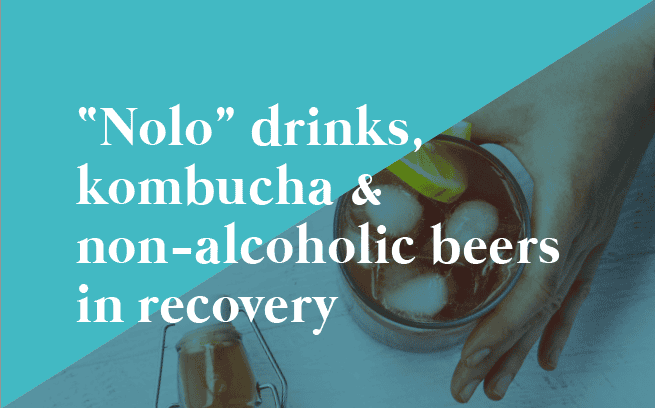
by Paul Churchill | Mar 17, 2020 | Helpful Tips, Resources, The first Year
In this article, I’m going to cover what a “Nolo” drink is, talk about NA (non-alcoholic) beers and kombucha. I’m also going to give my recommendation if you should stay away from these drinks or not since some of them do contain trace amounts of alcohol.
Side note – I feel more influencers, bloggers, podcasters need to cover controversial topics in recovery. Should we avoid NA beers that still contain small amounts of alcohol, does cannabis plays in recovery, and where does plant medicines such as ayahuasca, psilocybin, and ibogaine fit in recovery?
In episode 170, I came out about my experience with ayahuasca despite knowing I would face some intense criticism, which I did. I still feel it’s an incredibly powerful resource, and not sharing it with the audience wouldn’t be true to my mission.
Recently I heard from a blogger in this space who tried ayahuasca for the first time and they said it was the most powerful resource they have come across. I then said, “wow, I’m so happy with you, shoot me the link when you share your experience with the audience, I’m excited to read about it.” They responded with, I don’t have any plans about going public with it. I didn’t answer back, but my inner response was…. Weak. But I get it, I’m sure I’ll get some flack about the position I take with kombucha and non- alcoholic beers.
Speaking of Ayahuasca, I’m hoping to get dates set up for another trip to Rythmia in Costa Rica for later this year or early next. Email me a paul@recoveryelevator.com if you’re interested in joining.
As you may know, I have a book titled Alcohol is Shit, so it may come as a surprise for me to admit, there are some excellent uses for alcohol.
What is alcohol good for?
1. It does have a place in the medical field. It does a great job of killing bacteria and sterilizing things.
2. It’s a highly flammable fuel. It can power a car, a train, or a rocket.
Apart from that, alcohol is shit. People are waking up to the fact alcohol is a class 1 carcinogen, and ingesting the poison can cause significant havoc on internal bodily systems. So a trend is emerging. People are drinking less alcohol. Especially younger folks. Also, consumers are switching to more non or low alcohol content drinks.
People in masses are starting to recognize that alcohol kills 88,000 people per year in just the US alone, causes ulcers, sexual problems, Vitamin B deficiency, apathy, gastritis, malnutrition, nerve damage, liver disease, alcohol poisoning, acute making an ass out of yourself disorder, and a barrage of other things that nobody wants.
People are consuming less alcohol
Sales of no or low alcohol beer (this is where the term “nolo” comes from) is up 30% since 2016. This trend is especially popular with 18-24 year olds. Another fantastic statistic with this age group is that the number of 18-24-year-olds who report they don’t drink at all, increased by 6% last year alone, to 23% in total. Wow, you get a lot of flack millennials, but good on you.
According to the craft brewers’ trade organization, “Nolo” alcohol is set to be one of the driving trends of 2020.
The report is forecasting that no alcohol, low alcohol, and “free-from” beers are set to be one of the fastest-growing parts of the market in 2020, with under 35s choosing low alcohol versions of drinks for a quiet night in or to accompany meals.
Consumers are more conscious of their physical and mental health than ever, and this has driven the fall in alcohol consumption, especially among young people.
Here’s another promising figure – Growth in beer sales is slowing, with total beer sales in 2019 rising by 1.1%, compared with 2.6% growth a year earlier. And The report also indicated a slight increase in the overall number of people who never drink alcohol, with 17% saying they were teetotalers, compared to 16% a year earlier. That’s roughly 3.5 million more people who don’t drink.
I share this with you in hopes of reminding you that you’re not alone. That more people than ever are questioning the role that alcohol is playing in their lives. People are taking addiction seriously and recognize it’s not something that younger people even want to mess with. When millennials say “Yolo” they aren’t including alcohol addiction.
People, just like myself and you, are consciously making the decision to not drink something that will make you less conscious, less alive, and less vibrant. I choose, and I know you do as well, vitality.
NA Beers
Okay, let’s cover non- alcoholic beer. Legally, they can market it as non-alcoholic if it contains less than .5% of alcohol. So, non-alcoholic beer isn’t correct since it contains alcohol. Thank you, FDA. And you might need to ditch the booze if you just calculated how many NA beers you’ll need to drink to relive the glory days. Now, good on you Heineken and UK Based Smashed Lager for making a true 0.0 NA beer.
Now before I give you my opinion, my stance on NA beers, lets first cover why you want to drink an NA beer. Is it the taste? That there are small amounts of alcohol? To blend in? To not be asked why you aren’t drinking? Personally, I never drank beer, wine, or hard liquor for the taste. I drank for effect. I can think of about 74 other drinks that taste significantly better than NA beers, all of which don’t contain alcohol.
Soda water, with a splash of cranberry and a lime wedge, is at the top of the list. Another one is called the “Dustimosa.” You take a couple of sips out of a La Croix, or Buble can, and then fill back up with cranberry, orange, or grapefruit juice.
This is how I treat NA beers. I don’t drink them. Not because I don’t want to flirt with the idea of trace alcohol amounts in my system, but I prefer the taste of other beverages. Now there have been several times when someone hosts a party, and they get me a six-pack of NA beers. Out of generosity, I’ll always have 1. One time, someone got me and my friend, Dusty, he was interviewed in episode 206, Busch NA’s to play flip cup with everyone so we’d feel included.
My stance on NA beers, unless it’s a true 0.0% – stay away. You can find better tasting alternatives, and you don’t want to rattle the cage. It’s not worth it. I once heard a story from a guy who’s wife only allowed him to have NA beers in the house. So each night, he would go into the garage and drink 25-30 NA beers…
Again, my unequivocal stance is, stay away from NA beers that contain trace amounts of alcohol. If you end up having all six beers in under an hour, there’s a good chance you’ll feel it, and crave more.
Kombucha
Now let’s cover kombucha. What is kombucha? And why is it so popular in the US right now? According to Kombucha Brewers International, kombucha is a fermented tea beverage that’s made by adding a symbiotic culture of bacteria and yeast (SCOBY). This solution of tea and sugar produces various compounds, including alcohol and acetic acid, the primary flavor of vinegar.
Kombucha helps support healthy liver function and assists the liver in the detoxification process by making fat-soluble toxins water-soluble. A recent study found recovering alcoholics with higher gut bacteria diversity were more successful at staying sober. There is a strong gut-brain connection, and drinking kombucha strengthens that connection by increasing the number of healthy gut bacteria. 80% of serotonin is created in the gut when healthy gut bacteria and function are present.
I also want to mention, if you had a sandwich or burger for lunch today, you most likely had more alcohol than a Kombucha. Burger rolls have almost 1.3% alcohol, and a ripe banana or pear has about .4% alcohol. How far down do you want to draw this line in the sand?
With kombucha, my take, my stance, my opinion is… Have a kombucha for lunch. Greenlight. But make sure, if you’re at a kombucha brewery, it’s less than .5% or ideally 0.0%. I feel the health benefits outweigh the risks with a kombucha. Plus, for some reason, the thought of chugging 12 kombuchas at lunch makes my stomach stir.
What sometimes sneaks up on me with kombucha is the caffeine. If I have one for dinner, it usually keeps me up at night. So keep that in mind.
To go a little deeper with this article, the overarching problem isn’t alcohol. At first, it is when we are physically addicted. But after it’s been out of the system for a while, it’s about finding healthier ways to regulate inner discomfort without an external substance like wine, beer, spirits sex, shopping gambling, or kombucha. Awareness of what’s happening internally is significantly more important than avoiding kombucha.












